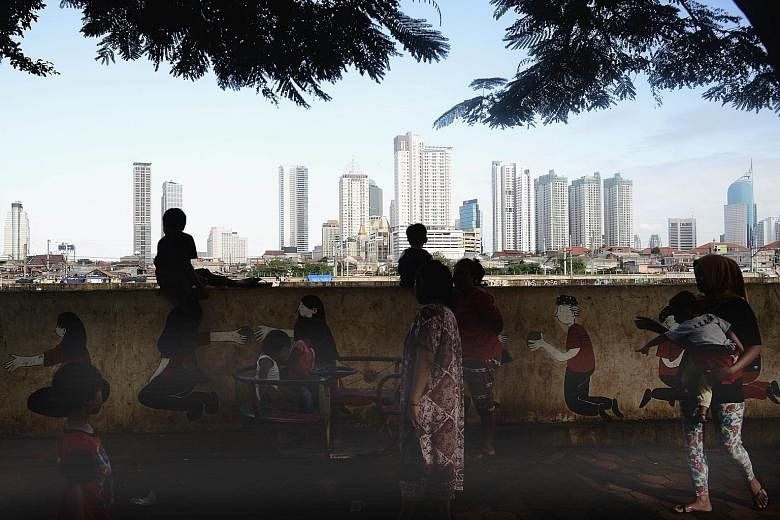JAKARTA • The World Bank has trimmed its 2016 growth forecast for Indonesia, saying a miss on the government's revenue target will constrain state spending.
In a quarterly review of Indonesia's economy released yesterday, the lender revised the growth outlook to 5.1 per cent from 5.3 per cent in December.
The International Monetary Fund also issued its annual Indonesia policy review, in which it forecast growth of 4.9 per cent this year, up from 4.7 per cent in 2015.
The World Bank said its downward revision stemmed from weaker-than-expected global conditions and constraints the government faces on spending, meaning that growth will depend more on private sector spending.
Indonesia will probably miss its 2016 revenue target by 275 trillion rupiah (S$28.8 billion), the bank said. It projected revenue of 1,547 trillion rupiah, about 3 per cent higher than last year, not taking into account a tax amnesty that offers a low tax rate for taxpayers who declare their untaxed wealth at home.
Jakarta's revenue target is 1,822 trillion rupiah. A sizeable shortfall can force cuts in state spending, as Indonesia has a law limiting its fiscal deficit to 3 per cent of gross domestic product (GDP).
According to the bank, the government "has two policy options: expand the deficit within the fiscal rule of 3 per cent of GDP and reduce non-priority spending". Assuming Jakarta takes both options, the World Bank expects 2016 expenditure disbursement to be limited to 91 per cent at 1,906 trillion rupiah, and the fiscal deficit to reach 2.8 per cent of GDP. The government's original plan was for 2.2 per cent.
President Joko Widodo initially wanted to boost revenue by relying on a tax amnesty programme that his finance minister said would bring in about 100 trillion rupiah. But the plan has sparked controversy and Parliament has delayed debate on a Bill backing the amnesty programme until at least April.
Finance Minister Bambang Brodjonegoro last week said that if Parliament rejects the tax amnesty Bill, Jakarta will step up efforts to audit tax reports of individuals.
Meanwhile, South-east Asia's largest economy produced its largest trade surplus in seven months in February at US$1.14 billion (S$1.57 billion), as exports fell at the slowest annual pace since October 2014.
Statistics bureau data yesterday showed exports contracted for the 17th straight month, falling 7.8 per cent from a year ago to US$11.3 billion. Imports, however, were slightly weaker than the poll forecast, declining 11.71 per cent from a year earlier to US$10.16 billion.
REUTERS

